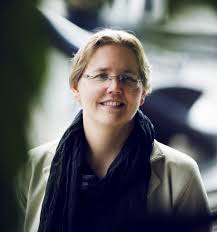Women miss out on promotion because of withheld Aspasia grants
-
 Illustration: Roel Venderbosch
Illustration: Roel Venderbosch
One in five women researchers fails to progress to associate or full professorship despite research funding organisation NWO offering their university additional funds for this purpose, via the Aspasia grant. They’re told that the grant doesn’t fully compensate for additional salary costs or that it interferes with local HR policy.
This is the conclusion of a survey by de Volkskrant, which VOX had access to, among more than two hundred potential Aspasia candidates. These women researchers all received a Vidi or Vici grant from NWO in the period 2013-2018 and were not yet professors at the time, which makes them eligible for an NWO Aspasia grant. The Vidi and Vici grants are two of the most prestigious personal research grants offered by NWO.
At the bottom
The Aspasia is specifically intended to promote progression of women researchers to associate and full professorship. A much needed measure, since according to the most recent Monitor of the Dutch Network of Women Professors (LNVH), in 2017 less than 30% of associate professors and 21% of professors were women (excluding academic hospital staff),. This places the Netherlands almost at the bottom in European rankings. At Radboud University, 27% of professors are women (including Radboudumc staff), a figure the University hopes to raise to 30% by 2020.
In the Aspasia programme, every female Vidi laureate who wasn’t yet promoted to associate professorship is automatically granted €50,000 (in addition to the €800,000 of the Vidi) if her university promotes her within a year. Female Vici laureates are granted €100,000 if promoted to full professorship (the Vici itself amounts to €1.5 million). For women researchers without a permanent contract, the promotion period extends to three years.
No support
Of the 126 survey respondents who were eligible for an Aspasia grant (on a total of 144 women respondents), one in five indicated that she did not receive the grant or accompanying promotion, despite wanting to. Of those who were awarded an Aspasia grant, one in nine felt their university didn’t support their promotion. These figures are in line with NWO’s own evaluation of the incentive programme over the period 2010-2012.
Whether or not a researcher gets an Aspasia seems to have more to do with her faculty or department than with the university employing her. Candidates who didn’t get the Aspasia grant or were still unsure of whether they would, are found all over the Netherlands, including at Radboud University.
‘I’ll believe it once I see my promotion to associate professor in writing.’
In the words of a Nijmegen Vidi laureate: ‘I didn’t feel supported at all when NWO offered me an Aspasia grant, and I had to figure out everything myself. I feel departments here are doing everything in their power to avoid granting permanent contracts. They see people like me as trouble-makers. In the end, Radboud University agreed to follow the Aspasia recommendation, but I’ll only believe it once I see my promotion to associate professor with a permanent contract in writing.’ For this reason she wishes to remain anonymous.
Women in academia are still disadvantaged compared to men, she continues. ‘I see men promoted to full professorship much faster, while women who are in my opinion much more capable get stuck in assistant and associate professorships. Incentive measures like the Aspasia are very much needed, but they could be made more effective still, for example by enforcing them more stringently.’
On hold
Another Nijmegen Vidi laureate says her department has been keeping her ‘on hold’ for ages regarding her Aspasia grant, because ’there’s supposedly no clear internal policy’ on the matter. She too wishes to remain anonymous to protect her career.
‘Ridiculous and super-frustrating’ is how this researcher describes her situation. ‘Aspasia is a nice idea, but in practice the programme only seems to work if the university was planning to promote a person to associate professorship anyway.’
Reasons
According to the national survey, the most frequent reason given for withholding an Aspasia grant is finances. The grant only covers the additional salary costs for a short time while the university might be stuck with a researcher until retirement.
A second frequently mentioned reason is that institutions “don’t want NWO to dictate their appointment policy”. The compulsory promotion required by the Aspasia programme may interfere with local appointment guidelines. Some universities are willing to promote Aspasia candidates, but only if they meet internal criteria for associate professorship. If this is not the case, the Aspasia is withheld.
Incidentally, most laureates do get support from their faculty, as was the case for Lotte Jensen. The Professor of Dutch Cultural and Literary History even got two Aspasia grants. Thanks to the first one, following her Vidi grant in 2010, she was promoted to associate professor. ‘The Aspasia I got after my Vici was a win-win situation.’ The Faculty received a diversity grant of €50,000, and Jensen was promoted to full professor.

The diversity grant in question formed a fixed component of the Aspasia programme until last year. It represented an extra €50,000 in addition to the actual Aspasia grant, to be spent by the university on structural internal diversity measures, such as creating a women’s network. This requirement – and the attendant grant – was abolished in the last round of the Innovative Research Incentive programme.
Excellent
The Dutch Network of Women Professors (LNVH) is not surprised by these figures and refers to the withheld grants as missed opportunities for universities. ‘After all, these are women who were found by an internal Vidi or Vici committee to be excellent researchers’, says the LNVH spokeswoman. LNVH would like universities and NWO to discuss how to achieve a higher percentage of awarded Aspasia grants, and plans to organise a meeting to this end. ‘This way we can make optimal and effective use of this nice programme.’
Marieke van den Brink, Professor of Gender and Diversity, agrees with LNVH. ‘As long as women are underrepresented, we need incentive programmes like Aspasia. Universities should be happy to get help in securing excellent candidates for higher positions.’
‘Universities should be happy to get help in securing excellent candidates for higher positions’
Van den Brink believes it’s up to the departments to initiate change. ‘It’s relatively easy for an Executive Board to express support. But it’s up to the head of department to have the courage to appoint one person over another. Show the world that you find this important.’
It’s a misconception to see it as a form of favouritism, says Van den Brink. ‘Many managers still think women and men have equal opportunities, but unfortunately we don’t live in this kind of meritocracy. Research consistently shows that unconscious gender inequality plays a role in the recruitment and selection process. People are less objective than they think.’
Useful grant
The large majority of survey respondents are happy that the Aspasia programme exists. Only 8% see no added value in it. What’s more, a large majority of Aspasia recipients (61%) believe that without the grant they would have been promoted later or not at all. 28% believe the grant had no impact on their promotion, while 11% are unsure.
Three in five respondents see room for adjustments to the NWO programme. The most common suggestions are raising the grant amount and setting clearer criteria for how the money should be spent – the universities have so far been relatively free in this respect. Many respondents also find the period within which candidates must be promoted (in principle one year) to be too short.
The Association of Universities in the Netherlands (VSNU) blames the lost Aspasia grants largely on lack of structural funding for universities. ‘When you promote someone to associate professor, there has to be room for embedding’, explains spokesman Bart Pierik. ‘Otherwise a university has to invest money from their own pocket, which is often not possible. Many institutions suffer from this kind of matching pressure.’ Pierik hopes this pressure will decrease now that the Dutch government is planning to shift €100 million from NWO to direct government funding.
Close monitoring
Radboud University faces similar problems, says spokeswoman Anja van Kessel. ‘It’s sometimes difficult to open up a structural position. Also, faculty budgets vary greatly, which makes it more difficult to compare them.’ On the other hand, the spokeswoman doesn’t believe Radboud University has ever withheld an Aspasia grant because of not wanting NWO to interfere with their HR policy.
On the contrary, Radboud University is very keen to bridge the gender gap. Van Kessel: ‘The Executive Board stimulates Radboud University to as much as possible use the Aspasia programme.’ To this end, the University plans to monitor the incentive programme more closely. ‘If departments withhold an Aspasia, they have to give very good reasons for doing so.’
Aspasia without Vidi
The survey did not represent all eligible candidates for the Aspasia grant. NWO also offers an Aspasia grant to Vidi applicants whose grant proposal was assessed as excellent but who failed to get a grant due to lack of funding. This grant is even higher (€200,000) than for Vidi laureates. The women researchers in question could not be included in the survey because their names – as opposed to those of Vidi and Vici laureates – are not made public.



